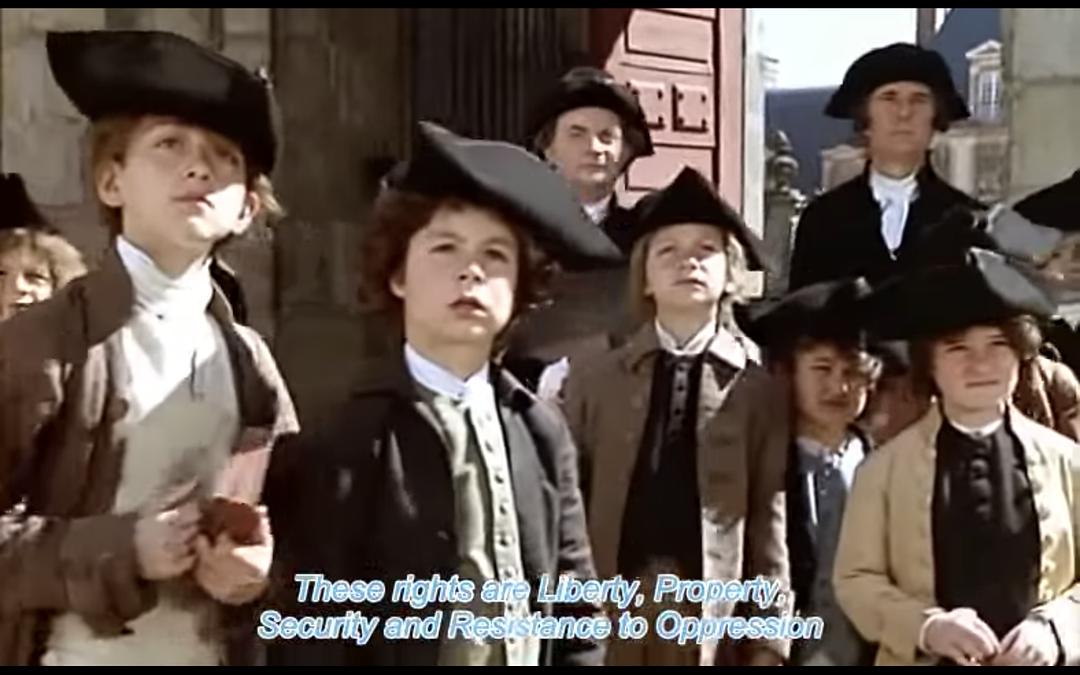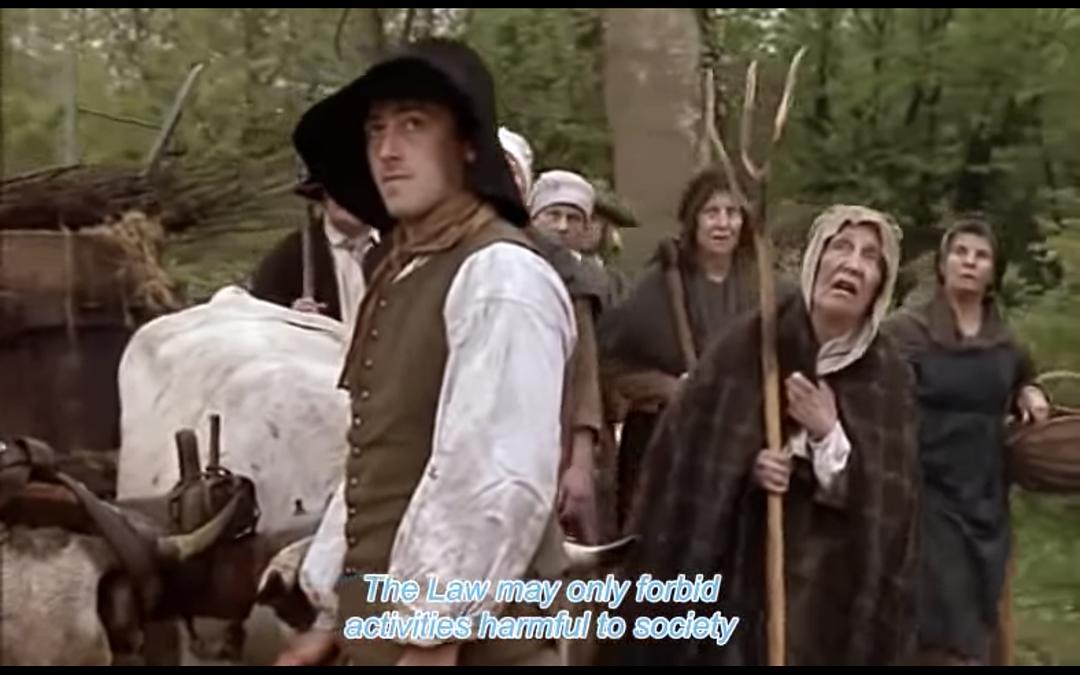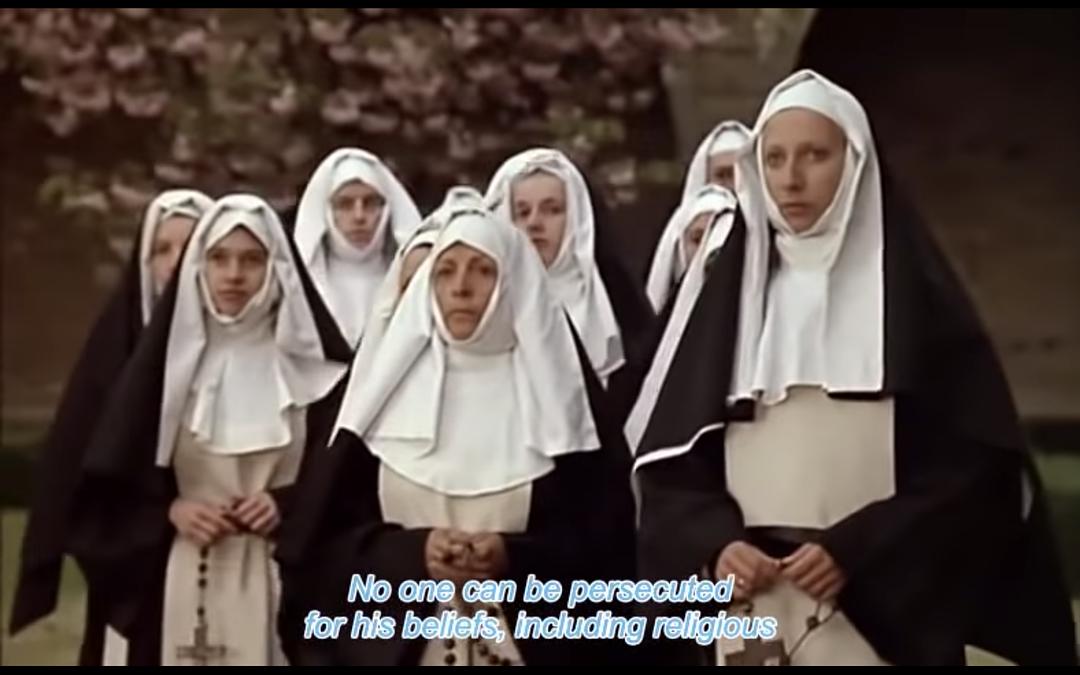This is a movie review for La révolution française (1989)
The French Revolution, recounts events from the initial government financial crisis to the death of Robespierre. Due to its 5-hour length, the movie is able to include a plethora of historical events with vivid details. Among those events I observed the creation of the National Assembly, the takeover of Bastille, the abolition of feudalism, the declaration of the Rights of Man, the drafting of the first constitution, the Woman’s march on Versailles, the revamping of the church, the Royal family’s attempted flight, the completion of the tribunal(Legislative Assembly), the war with neighboring countries such as Prussia and Austria, the governance under the Girondins, the “Reign of Terror”, and the “Thermidorian reaction.” All these events abound with famous historical moments such as the oath taken place in the tennis court, Louis XVI’s modification to the guillotine, the execution of Louis XVI and Marie Antoinette, the assassination of Marat(thanks to the famous painting), the powerful speech on Freedom and revolution delivered by Danton and the execution of Robespierre. This film is not a documentary but rather a movie recounting the French Revolution with great precision on historical details. Major characters from a chronological order includes Louis XVI, Camille, Danton, La Fayette, Robespierre, Saint-Just and so on.
The movie manages to strike a fine balance, condensing the whole French Revolution into merely 5 hours. It does not linger on any event for too long but rather provides as many details as possible. Most of the historical events, I believe, are recounted without partiality or prepossession. The actors are carefully chosen, and I find some of them (like Marat, La Fayette and Camille) bear great physical resemblance to the actual historical figures. The actor of Louis XVI really pulls off the character. Masked by a combination of nonchalant condescension and rooted distress, Louis XVI manages to express a genuine concern to French people right before his execution. The movie also succeeds in recreating a convincing enlightenment Europe setting with exquisite costumes, muddy buildings and all kinds of wigs.
One other thing I enjoy is the film’s shooting technique, specifically the technique deployed on the scene that introduces basic human rights to all classes of the people. When introduced by the narrating voice to the basic principles of human rights, all walks of people look up towards the direction of the camera with fervent and solicitous gazes as if there is something sacred in front of them that they are willing to defend with their lives.ter Such unique shooting technique easily enables viewers to relate the situation and to grasp the fundamental importance of the ideas of human rights.



The movie fails to provide clear background introductions and coherent logical explanations of historical events. First of all, I believe that adding proper titles to the newly introduced characters and the change of times and locales would be really helpful for me to better understand the situation. Even with sufficient knowledge of the revolution, I still found myself constantly lost in trying to decipher who is this new character and where is this new place. I understand that one common thrill from watching movies is the puzzle-solving joy of finally making sense of the whole plots, but for a historical movie that featured in hundreds of characters and lasted for more than 5 hours, clearer introduction is a must.
In addition to the lack of proper captioning, the movie sometimes switches from one historical moment to another in a manner so abrupt that one fails to understand the logic behind the scene itself and the connections between different scenes. Danton’s trial is such an example. At one moment Danton was laughing at the tribunal committee that accused him of being a monarchist and winning the majority support of the assembly; then suddenly Danton accepted his death by guillotine despite his vehement speech on revolution and freedom, simply because of some false evidences coined by Robespierre, and everyone in the house just let it happen. The movie almost assumes that since all of the events happened in the actual history, there is no need to even bother providing coherent explanations about how the events actually proceeded.
After watching this film, my perceptions on Louis XVI have changed. There is really not much Louis XVI can do despite all his effort to cooperate with the government and the people. As the last king of the Bourbon Dynasty, Louis XVI seemed to be the person who bore the full burden of sins committed by his father and his forebears. When Louis XV was allegedly saying the famous quote, “After me, the deluge,” he might have never imagined that it was his son who would face the wrath and ferociousness of the deluge in the name of the people. It is simply the inevitable tide of the history.
Danton临死前演讲:
路易十六临死前演讲: